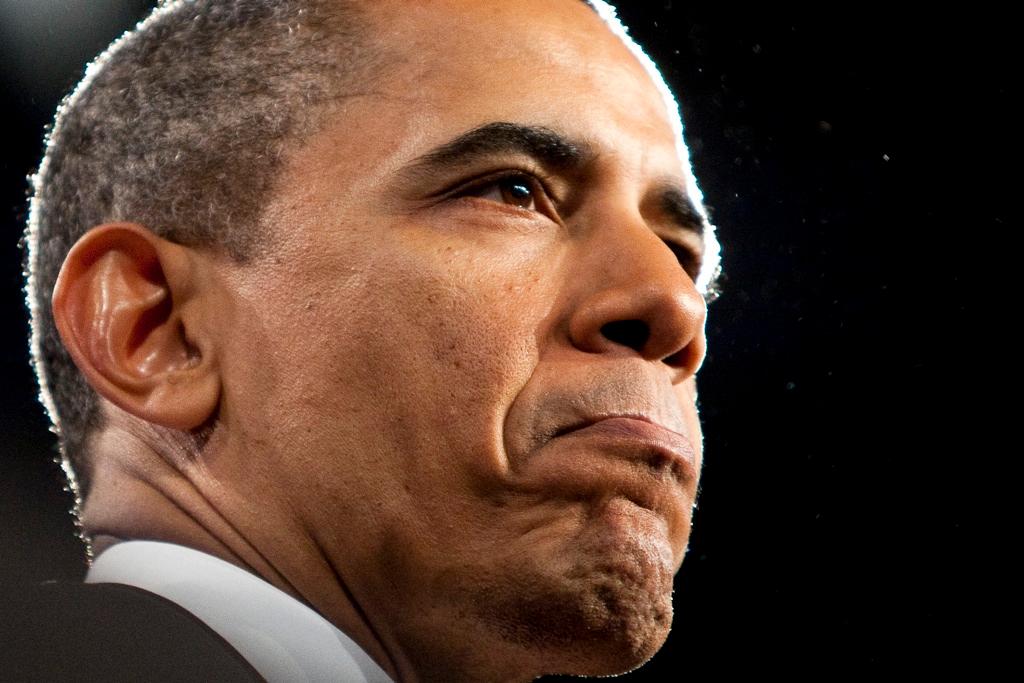Opinion: Obama’s recycled Middle East policy
U.S. President Barack Obama speaks to the American Israel Public Affairs Committee (AIPAC) on May 22, 2011 in Washington, DC. Obama spoke to AIPAC calling for Israelis and Palestinians to seek a two-state solution based on the 1967 borders.
NOTRE DAME, Indiana — U.S. President Barack Obama’s May 19th speech to the Arab and Islamic worlds comes at a critical juncture.
Several Arab countries are experiencing a wave of pro-democracy uprisings that have empowered the people through a strong will to live under free, democratic and accountable governments.
The death of Osama bin Laden should mark a major turn in the U.S.'s declared and open-ended “Global War” on terrorism. The peace process has been stalled for several years and the Palestinians will most likely begin their third intifada demanding a state of their own and an international recognition of a homeland of their own. Finally, the popularity of the U.S. and Obama in the Muslim world have plummeted to low levels.
While skeptics considered Obama's speech as unnecessary and would not add much to the already unfulfilled promises which Obama made in his historic Cairo speech of June 2009, some hoped that the president would lay out a new Middle East policy, a consistent vision and a political will that can reset the future relations between the United States and the people of the region.
To his credit, Obama went at length to draw the basis of a new Middle East policy. But what I heard was mostly a recycled Middle East policy that does not live up to promises of dynamic changes in the region.
While renewing the U.S. commitment to supporting universal human rights, pro-democracy movements, political and economic reform, Obama urged the resumption of the peace process with Israel, calling for pre-1967 borders. With the exception of an additional financial handout to Egypt, this hardly formulates a new policy.
Most of it was a reiteration of the key points that came in his June 2009 Cairo Speech: support for human rights, economic and political reform, empowerment of women and the young, and a two state solution (one secure Jewish state and another de-militarized Palestinian state).
The most intractable issues — Jerusalem and the right of return for Palestinians — are to be deferred to a later stage. Once again, Obama denied the Palestinians their natural rights to live as equal citizens in Israel by reiterating the U.S. commitment to Israel as a Jewish state and the homeland for the Jewish people. Where is the “sweeping” new policy in any of the above?
Obama missed an excellent opportunity to reset the fractured relationship between the United States and the peoples of the Middle East and the Islamic worlds. His speech reflects the inability of the U.S. to fully appreciate the extent of the changes that have so far taken place in the region.
Even in extending economic support, a true new policy should be based on mutual consultation and partnership — not on handouts.
Certainly, the $2 billion (up to $1 billion in debt relief and another in loans) will be greatly appreciated by Egypt's the transitional government and pro-democracy advocates. But this money will not even relieve Egypt’s immediate economic crisis. It represents a meager contribution given Egypt’s $34 billion foreign debt and over $200 billion internal debt. It might have greater impact if the U.S. assists with long-term economic progress to spur agricultural development, food sufficiency, industrialization and export-led growth.
Obama brilliantly talked about the youths and their struggle for dignity and democracy, but he did not talk to them. This is one significant aspect where the basis of a new Middle East policy could blossom. It should revolve around these youth movements and the peoples of the region, not regimes. The U.S. needs to convey clearly to them that it stands behind their attempts to build their free, independent, and developed future states.
A new, principled new Middle East policy needs to be nurtured, one that rests on equity and fairness, respect of international legality, justice and human rights, and hope and opportunity.
Emad El-Din Shahin is the Henry R. Luce Associate Professor of Religion, Conflict and Peacebuilding at the University of Notre Dame’s Kroc Institute for International Peace Studies.
We want to hear your feedback so we can keep improving our website, theworld.org. Please fill out this quick survey and let us know your thoughts (your answers will be anonymous). Thanks for your time!
